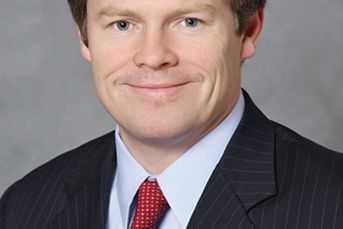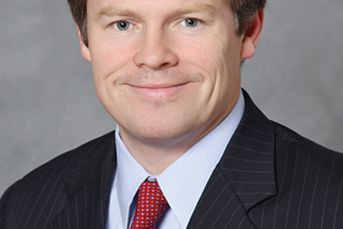JPMorgan Funds’ David Kelly: The forces of stability and chaos

In theory, it's quite simple.
The following is a weekly commentary written by David Kelly, chief market strategist at JPMorgan Funds.
In theory, it’s quite simple. The value of stocks and bonds should be determined by profits and interest rates. These, in turn, depend upon relatively slow-moving variables such as economic growth, inflation, productivity, wage growth and the general attitude of policy makers. By these benchmarks, the outlook for U.S. and global stocks should be very bright and, while bond yields might rise, balanced investors should be able to look forward to a few years of comfort and gain in a general global economic recovery.
However, in the hyper-fast, hyper-connected and hyper-sensitive markets of 2010, investors have had little assurance that slow-improving fundamentals would yield financial gains or even be sustained in the face of financial convulsions. These opposing forces were fully on display last week and may renew their conflict this week.
However, as of this morning, the forces of stability should have an edge.
Last night, European Union governments, acting in concert with the ECB, international central banks and the IMF, took some dramatic steps to calm the sovereign debt crisis.
• First, they agreed to establish a huge €750 billion fund to lend to countries whose debt is seen as under attack by speculators. This fund is being financed by €440 in contributions from Euro-member governments, €60 billion from the EU budget, and €250 billion from the IMF.
• Second, and crucially, these moves are being enhanced by an ECB decision to intervene in both public and private debt markets to “ensure depth and liquidity in those markets which are dysfunctional”. The ECB has also announced that it intends to sterilize these purchases, presumably selling the debt of more stable countries while buying the debt of more vulnerable ones. This can allow it both effectively to control the overall growth of the money supply and maintain the principle of not “monetizing” government deficits in general.
• Finally, the ECB has announced other measures in coordination with the Federal Reserve and other major central banks designed to stabilize short-term money markets.
This package contains a commitment by many European nations to take aggressive steps to meet deficit targets both this year and over the next few years, a fiscal tightening which could slow the European recovery and have some more modest negative impacts on growth around the world. However, if fully implemented, this massive package should have a good chance of routing the forces of chaos, at least for now, allowing U.S. investors to refocus on fundamentals.
Turning to those fundamentals, last week’s numbers were mostly encouraging with productivity logging its strongest year-over-year gain in 48 years and private sector job growth posting its strongest gains since March of 2006. A spike in on-line job ads, a fall in layoff announcements, an increase in the average workweek and a surge in labor force participation all point to a strengthening economic expansion at the start of the second quarter.
This week’s economic numbers should be less dramatic but should, nevertheless, support the general narrative, with strong gains in industrial production and hopefully no relapse in retail sales and unemployment claims, following recent gains. The earnings season is winding down with only 18 S&P500 companies due to report this week. However, this story should also continue to be a positive one, with results padding a now $18.75 estimate for 2010Q1 S&P500 operating earnings, up from an estimate of $17.16 just six weeks ago.
While the volatility of last week has reawakened memories of the awful fourth quarter of 2008, it also appears to have spurred European policymakers into decisive and united action. If they can maintain both their resolve and their unity in the months ahead, the sell-off of the last two weeks may well prove to have provided a better entry point for investors willing, once again, to take on board risk, particularly in the stock market.
Learn more about reprints and licensing for this article.





